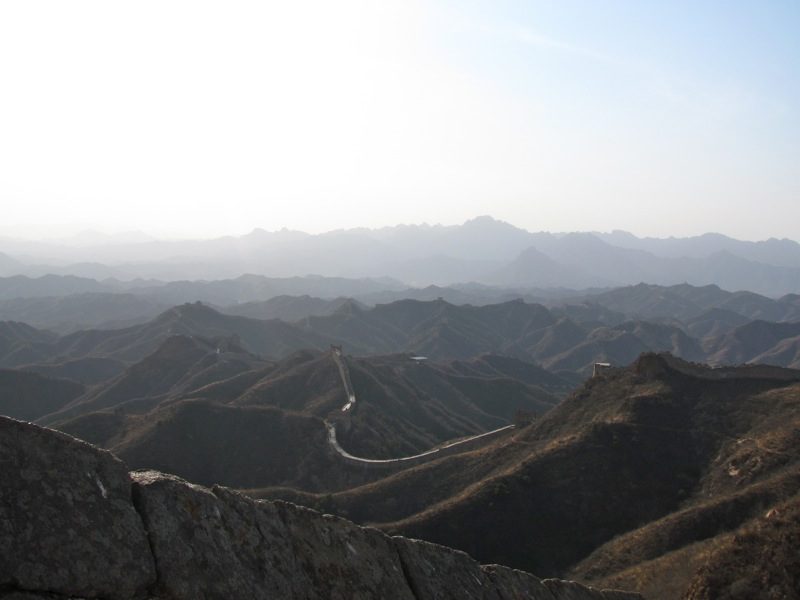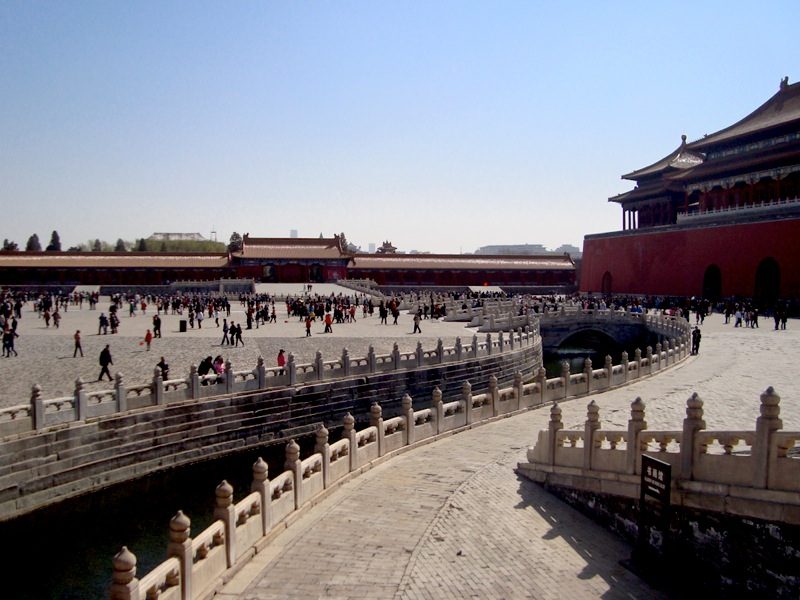Eshley Spitzer, from Indiana Universiy – Bloomington, has been writing weekly columns about her Semester at Sea experience for her campus newspaper, the Indiana Daily Student. Read her impression of China below.
For me, China was a land of contrast.
I found myself surprised by everything from the local delicacies of bagged chicken feet, the friendly locals who treated me to a ceremonial tea reception, the history of Shanghai’s skyscrapers, the landmarks in Beijing, the words of mumbled Mandarin, success in bustling bargaining markets and the communist government’s influences on the lifestyles of the people.
I found a surprise bursting with irony at the peak point in Beijing, the Great Wall of China. Riding up in a cable car, the snake –like, slithering line of bricks came into better focus, depicting the detailed construction that came towards me.
From up close, I witnessed the way the concrete met the dirt to make up this massive monument, stretching 5,500 miles in its entirety.
Imagining the labor left leaking from the reminiscent bricks and the stories of warfare lingering around the tiny piece of this barrier wall that I was visiting, I hiked up to the tallest point in the Mutianyu region. Huffing and puffing my way to the top, I couldn’t help but feel so miniscule next to the monument.
Smelling the cold, crisp air, witnessing the magnificent mountains that spiked through the area and following the small, squiggly line that represented the continuation of the structure in the distance, all of my senses grasped on to the greatness.
This viciously vast boarder, gaining length over the years as different dynasties built onto it, was continually used as a protection barrier for the Chinese empire. Regulating everything from trade to military forces to foreign influences, the wall was continually funded to stretch from the East to West to protect the precious borders.
Starting with the early walls connected in the Qin dynasty, later reinforced and revived by the Ming dynasty, the wall served as the ruling method of resistance to allowing anyone or anything into China. The Emperors knew they wanted to keep the influences outside and push the limits of their powers within the wall.
The Irony overwhelmed me as I took my time taking in the cosmic continuation from a distance. All around me, multiple languages were being spoken by the influx of foreigners who had traveled great distances to see, breathe, smell and feel the Great Wall of China. A structure initially built to keep all things foreign far away was now a number one tourist attraction, a world heritage sight, flowing with visitors by the masses each day.
I made the same observation while walking through the Forbidden City, an intricate, elaborate, vast palace initially meant for Ming royalty alone, but now complete with the commotion of commoners, anxious to feel the pompous privilege of being let inside.
From reaching the highest point on the Great Wall to wandering in the stirring streets in Shanghai, I could feel the watchful presence of the Chinese government through the guidelines and guards that protect the modern palace through their stringent procedures.
The communist government in China may try to protect its walls from futuristic, foreign visions, but like these monumental barriers that are filled with foreigners today, it may be impossible to keep the people quiet forever.
Click here to read more of Eshley’s columns from the Indiana Daily Student.




